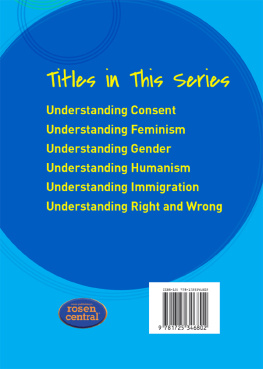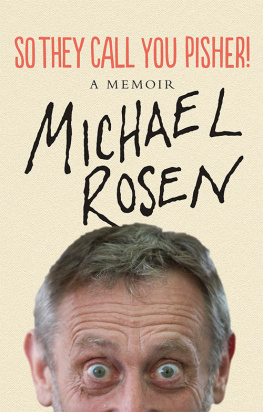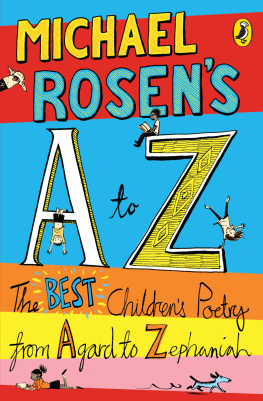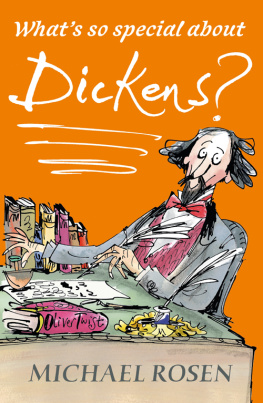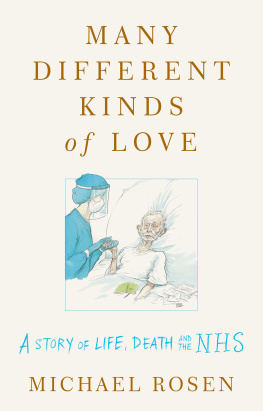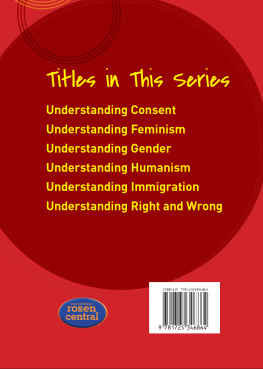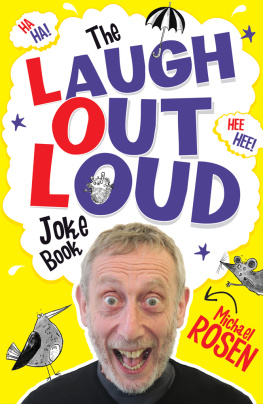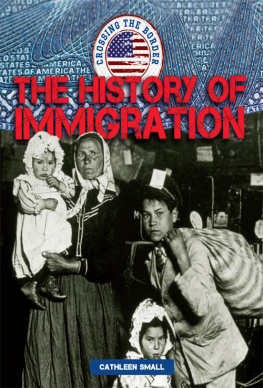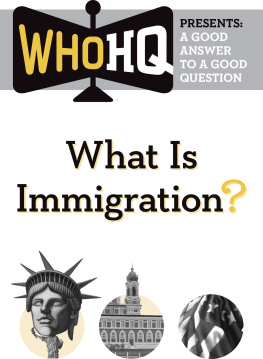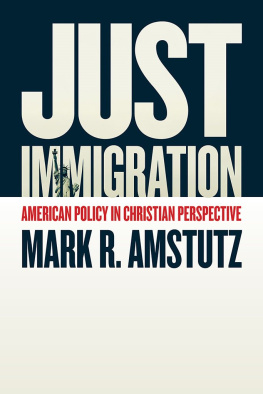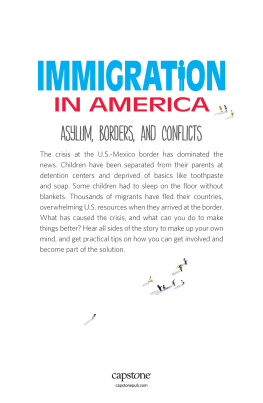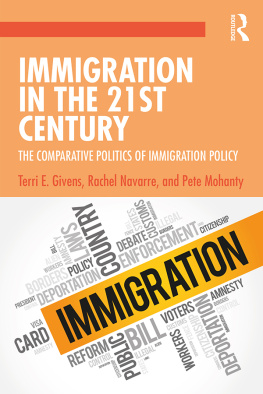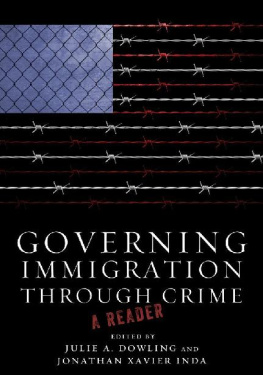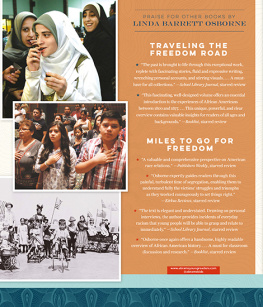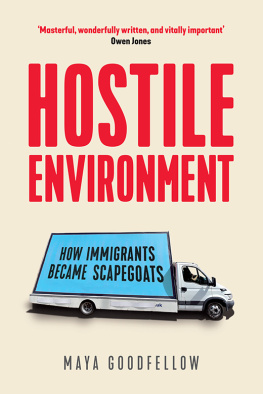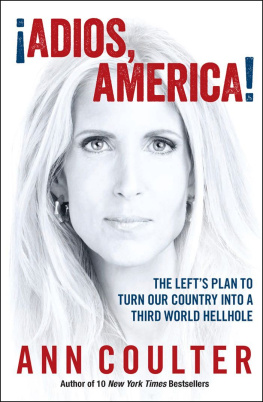
For Emma, Elsie and Emile (M.R.)
In memory of my parents and grandparents, and for all those who have to seek asylum (A.Y.)
This edition published in 2020 by:
The Rosen Publishing Group, Inc.
29 East 21st Street
New York, NY 10010
First Edition
All rights reserved. No part of this book may be reproduced in any form without permission in writing from the publisher, except by a reviewer.
Cataloging-in-Publication Data
Names: Rosen, Michael. | Young, Annemarie.
Title: Understanding immigration / Michael Rosen and Annemarie Young. Description: New York: Rosen Central, 2020. | Series: Social justice handbook | Includes glossary and index. Identifiers: ISBN 9781725346802 (pbk.) | ISBN 9781725346819 (library bound) Subjects: LCSH: ImmigrantsUnited StatesJuvenile literature. | United States Emigration and immigrationSocial aspectsJuvenile literature. | United States Emigration and immigrationHistoryJuvenile literature. | United StatesEmigration and immigrationGovernment policyJuvenile literature.
Classification: LCC JV6475.R67 2019 | DDC 325.730904dc23
Manufactured in the United States of America
Copyright 2020 Wayland, a division of Hachette Childrens Group
Editor: Nicola Edwards
Design: Rocket Design (East Anglia) Ltd
Artwork by Oli Frape
Picture acknowledgements:
All images courtesy of Shutterstock except for: Cover photo: filadendron / iStock / Getty Images Plus; Cover design element: CS Stock / Shutterstock; Benjamin Zephaniah.
CONTENTS
Why Do We Need This Book?
The aim of this book is to get you to think for yourself about the questions we raise. Questions like, What makes people leave their homes? and What happens to them/ how are they treated when they arrive in a new country?
Every day on television, on the radio, and in the papers, people are talking about refugees, asylum seekers, migrants, and immigration. We see pictures of people crammed onto boats, taking difficult journeys, sometimes dying before they get to where theyre headed. We might also hear about people stowing away hiding in trucks, planes and cars as they try to escape from where theyve been living.
Meanwhile, there are important discussions going on about what should happen to these refugees and migrants, and what the countries that receive them should do about the situation.
Sometimes people talk about these things without understanding very much about them. Well give you information so that you can form your own opinions.
This book aims to help you understand migration, the movement of people, in all its forms.
How the book works
Well start with definitions of the words. There are definitions of refugee and asylum seeker under international law that all countries within the United Nations are bound by. We will go on to explore the more general meaning of migration, as well as the meaning of migrant. Then well tell you about our own, and others, experiences.
After that, well ask these and other questions: Why do people leave their homes? How do they travel and what happens when they arrive? Have people always migrated? What is culture and how do we share it?
We will give you the first fourteen articles of the 1948 Universal Declaration of Human Rights and tell you about the United Nations Refugee Agency, known as the UNHCR (United Nations High Commissioner for Refugees) and its Convention relating to the status of refugees.
Youll be able to read the personal stories of Muzoon Almellehan, Benjamin Zephaniah, Meltem Avcil, and Omid Djalili, as well as quotes from many other people refugees and migrants and those who work with them and an extract from Benjamins poem We Refugees.
There will be questions for you to think about as you read. And at the end you will have the opportunity to think about what you would do if you were faced with the situations and choices made by refugees and migrants, and to write your own Declaration of Human Rights, using the think about questions as a starting point.
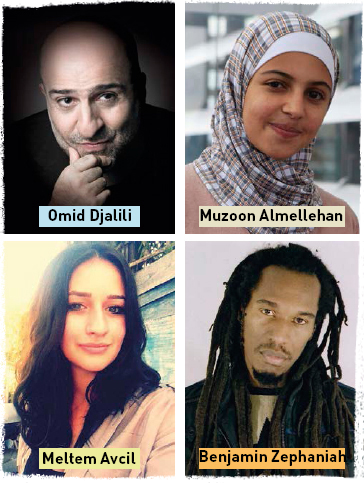
asylum seekers are human beings with the same feelings, ambitions and dreams as everyone else. People dont seek asylum unless they have to leaving home, family and friends and embarking on a journey to the unknown under difficult and dangerous conditions is not easy. I have heard people say asylum seekers are criminal parasites and some even call them a threat to our future, but I hope people realize that asylum seekers want to be active, responsible and self-reliant members of society and that demonization is not helpful.

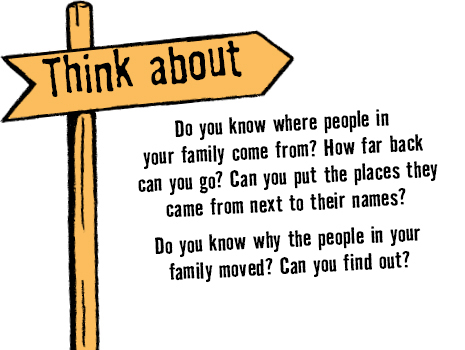
Who Are Refugees and Migrants?
Youll hear and read lots of different terms: refugee, migrant, asylum seeker. What do these words mean, and what are the differences between them? Does it matter which words we use? There are legal definitions of these words that have been agreed by the United Nations.
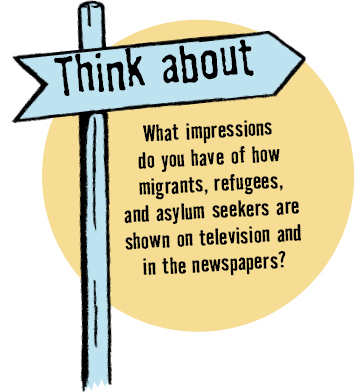
The United Nations and international law
The United Nations (UN) was established in 1945 straight after the end of the Second World War, in response to the terrible things that had happened during the war, and more immediately, to deal with the huge number of refugees. The aim of the UN is to promote international co-operation in order to prevent such conflicts from happening again. The UN is responsible for international laws that all member states are bound by.
National laws
Individual countries can decide on the details of how they deal with immigrants and asylum seekers, so they each have their own immigration and refugee or asylum laws. But these laws have to respect international law.

Refugee or migrant? Does it matter which word we use?
Refugees are people who are fleeing armed conflict or persecution, and who would be in danger if forced to return to their own countries. Migrants are people who choose to move not because of a direct threat of persecution or death, but mainly to improve their lives by finding work, or in some cases for education, family reunion, or other reasons. Although those migrants who leave poorer countries would be returning to unemployment and poor conditions, they can, unlike refugees, return home without immediate danger.
So, does it matter if we use the words refugee and migrant interchangeably? Adrian Edwards from UNHCR explains why it does.
Conflating refugees and migrants can have serious consequences for the lives and safety of refugees. Blurring the two terms takes attention away from the specific legal protections refugees require We need to treat all human beings with respect and dignity. We need to ensure that the human rights of migrants are respected. At the same time, we also need to provide an appropriate legal response for refugees, because of their particular predicament
So, at UNHCR we say refugees and migrants when referring to movements of people by sea or in other circumstances where we think both groups may be present We say refugees when we mean people fleeing war or persecution across an international border. And we say migrants when we mean people moving for reasons not included in the legal definition of a refugee. We hope that others will give thought to doing the same. Choices about words do matter.
Next page
